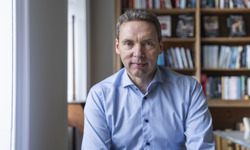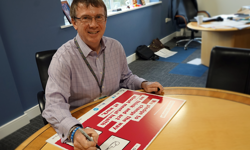
This is done by making scholarly, professional and research information more accessible.
It means that IOPP’s journals – which span more than 40 subject areas reaching beyond physics and into materials science, biosciences, environmental sciences, mathematics, engineering and education– will be accessible to institutions and organisations in 120 lower income countries.
Antonia Seymour, Publishing Director at IOPP, said: “Research4Life’s goals and values align extremely closely to our own and those of our parent society, the Institute of Physics. For some time, we’ve supported projects that aim to increase access to knowledge and research in developing and transition economy countries, including INASP and EIFL.
“We also recently launched a programme called open physics, in which we’ve committed to supporting the wider adoption of open practices across the physical sciences by improving the access to, and transparency and inclusivity of the research we publish. Some examples of things we’re doing include open data polices, transparent peer review, and improving the geographic and gender diversity of our reviewers and editorial boards.
“Accelerating the expansion of global access to research as part of our commitments to open physics means the decision to join Research4Life was a natural one, and we’re delighted to be on board.”
Andrea Powell, Publisher Coordinator for Research4Life, and STM’s Director of Outreach, said “We are delighted that IOPP has joined the partnership as they add so much top quality research content to the collection now available to researchers in over 10,000 institutions in our eligible countries. As the world recovers from the coronavirus pandemic, having online access to the latest research and evidence in all scientific disciplines will be crucial, and Research4Life is an important programme that seeks to level the playing field for all participants in the research communication ecosystem.” IOPP journals are now available via Research4Life.
IOPP also has a wide range of resources for authors, including submission guides, ‘how to get published’ training, language editing services and an article publication charge waiver for authors from low income countries (as defined by the World Bank).










